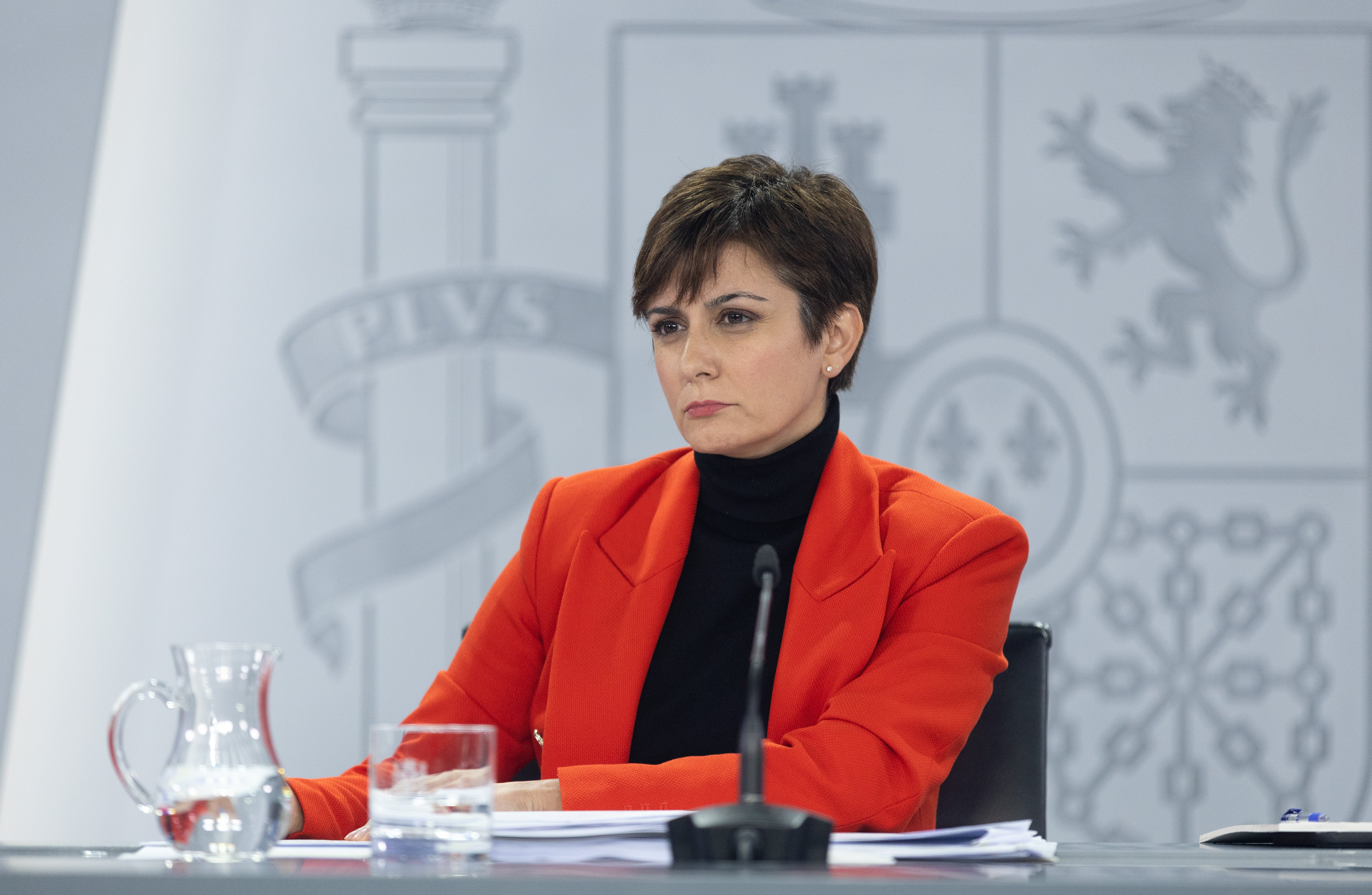Oriol Junqueras's new proposal has nowhere to go as far as the Spanish government is concerned. That was how clear the spokesperson for the Pedro Sánchez executive, Isabel Rodríguez, sought to be this Tuesday, simply stating that the proposal from the Catalan Republican Left (ERC) to hold an independence referendum following the path taken by Montenegro is a utopia because it conflicts with the Spanish Constitution. "It is unconstitutional", said the spokesperson bluntly, as well as stating that such a popular consultation "will not be held".
Rodríguez argued that since the arrival of the PSOE-Unidas Podemos coalition at the Moncloa palace in 2020, the political conflict with Catalonia "has gone from being the second most important concern of Spaniards to being beyond position number forty". "We take decisions thinking about social harmony", she said to justify the agreements made between the Socialists and ERC to modify the Spanish Penal Code with the introduction of aggravated public disorder and the reform of the crime of misuse of funds. "Since Pedro Sánchez has been Spanish prime minister, the law and the constitution have been followed in Catalonia and harmony and coexistence have been restored," she added.
The ERC proposal for the conditions of a hypothetical new Catalan referendum, which is to be debated in the party's national congress in January, is based on the experience of Montenegro (endorsed by the European Union): it would require a minimum participation of 50%, and for 'yes' to win, it would have to obtain a minimum of 55% support. "We will gain a lot of legitimacy if we win with 55%, it is indisputable and would be perceived as the definitive referendum", say ERC sources. The party also asserts the importance of a "clear question" like the one used in 2017 ("Do you want Catalonia to be an independence state in the form of a republic?") and for the electorate to include all people resident in Catalonia over the age of 16 and all those residents who have right to vote in the elections to the Parliament of Catalonia. Under the proposal, a victory for 'yes' would be followed by a good-faith negotiation between Spain and Catalonia "with a view to reaching an agreement that allows the creation of an independent Catalan Republic recognized at international level".
Independence was in the majority in 2017
Ironically, simultaneous with the door-slam on a referendum by the Spanish government has come another recognition from the executive in Madrid that Catalonia reached a position in which pro-independence voters were in the majority. If minister Félix Bolaños did it a few weeks ago, now the spokesperson, Isabel Rodríguez, followed suit. "What used to be a majority sentiment in Catalonia, - support for independence - is no longer so". She said this in response to questions from journalists, when she was asked about the Spanish executive's management of the political conflict between Catalonia and Spain.
In the middle of November, and during a Senate plenary session, presidency minister Félix Bolaños asserted in response to the PP that "in 2017, there were a majority of Catalans who wanted to leave Spain". He contrasted this with the "vast majority that now exists of Catalans who want to remain united to Spain" as a result of these "solutions" that the Spanish government has put forward to resolve the political conflict.
This Tuesday, Bolaños himself also ruled out a new referendum following the ERC proposal, also rejecting that the independence movement would push for the right to vote if there was no pact with Spain. "I am the one who rules out the unilateral route", he stressed, in addition to insisting that his executive is working for "social harmony" in Catalonia. "The referendum is contrary to the Constitution", Bolaños also echoed. Likewise, he asserted that a consultation to decide the political future of Catalans "would only create confrontations".

